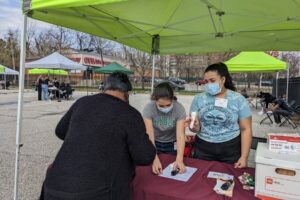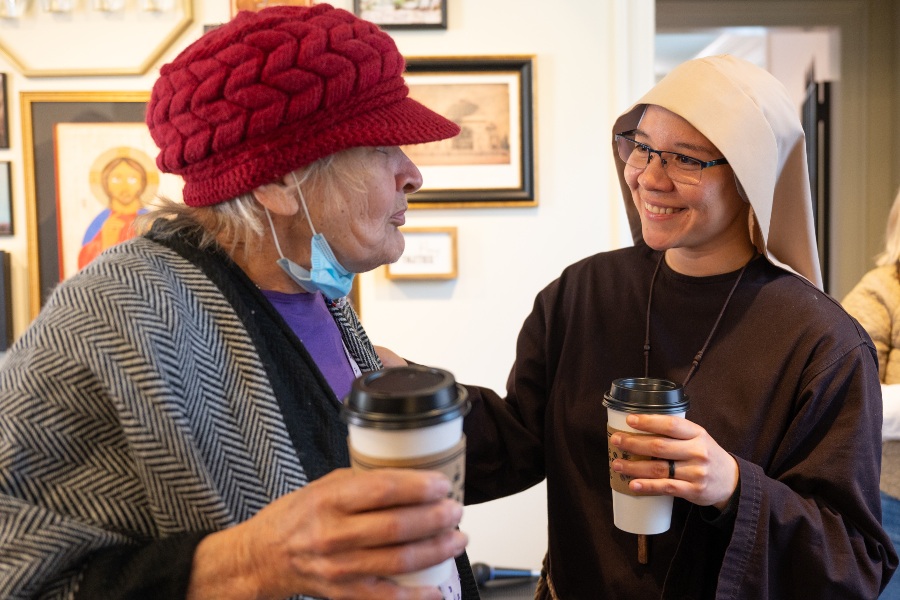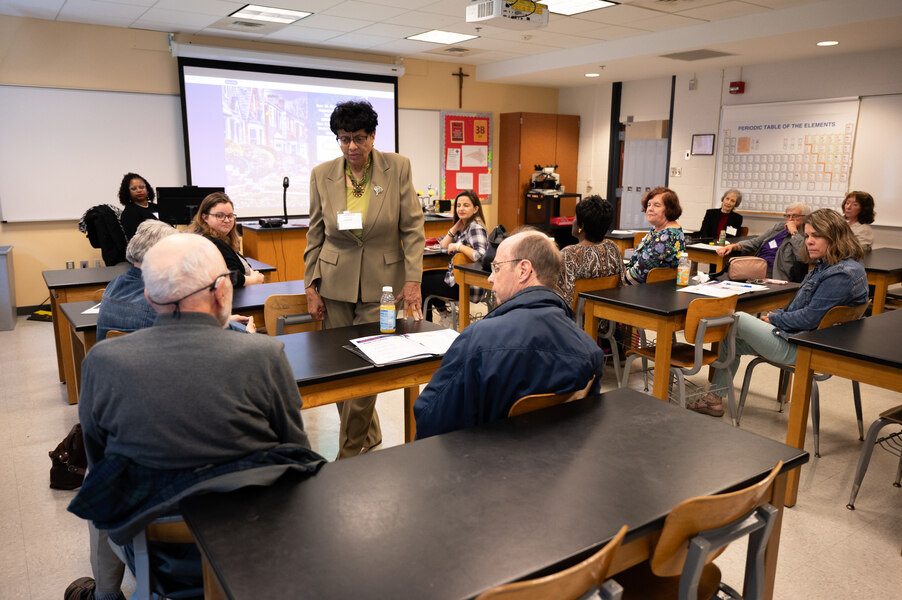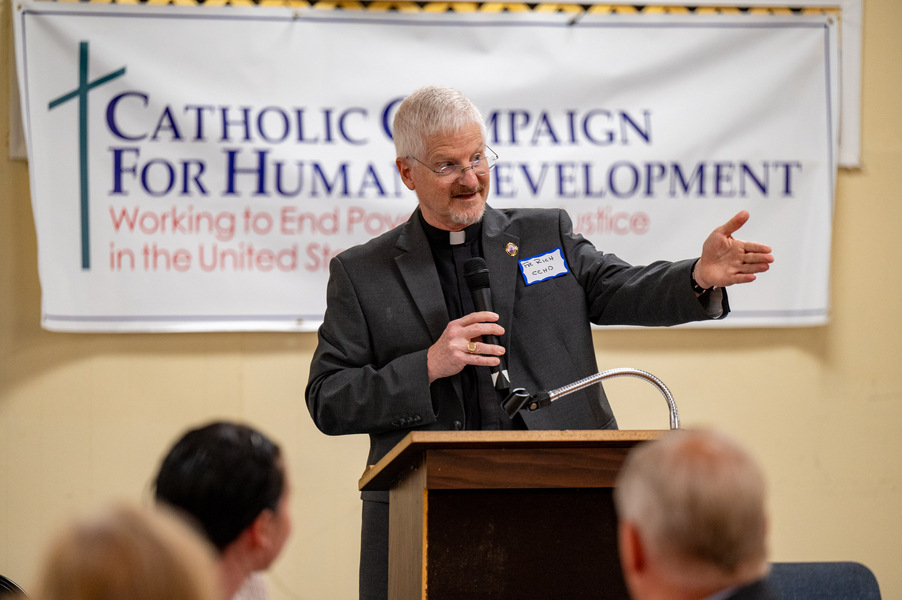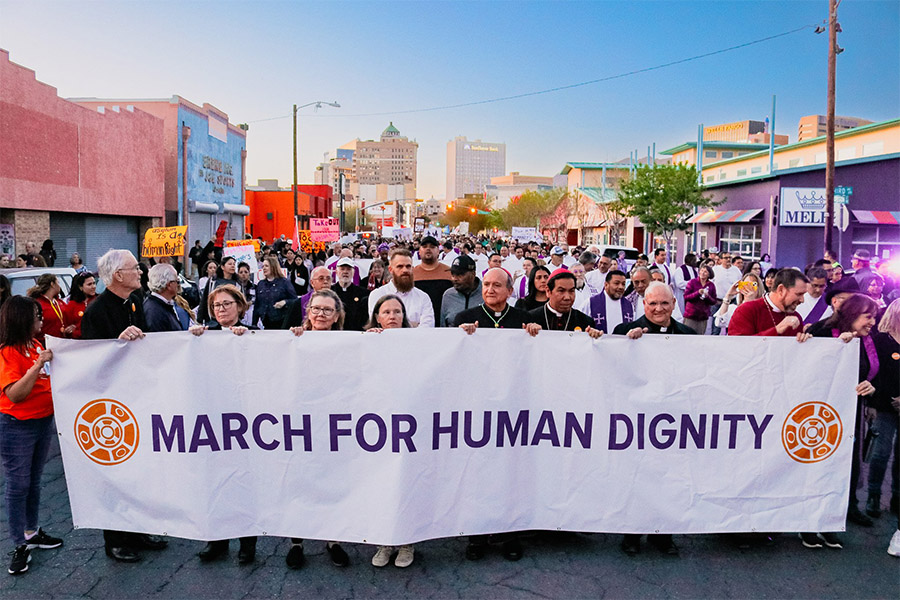In partnership with Maryland Legal Aid, Loyola University Maryland in Baltimore hosted its first “expungement clinic” on York Road March 19 to benefit more than 60 members of the university’s neighboring Govans community.
The partnership was an opportunity for 25 Loyola students to have firsthand law experience and for 15 lawyers, including Loyola alumni, to give back to the community. Other Loyola friends and staff participated as well.
According to the American Bar Association, expungement is the process by which a record of criminal conviction is destroyed or sealed from state or federal record.
For people with criminal records, ordinary goals seem impossible to achieve, such as education, jobs, housing, loans and more. Expungement is available for individuals with criminal records as long as they fall under the eligible criteria.
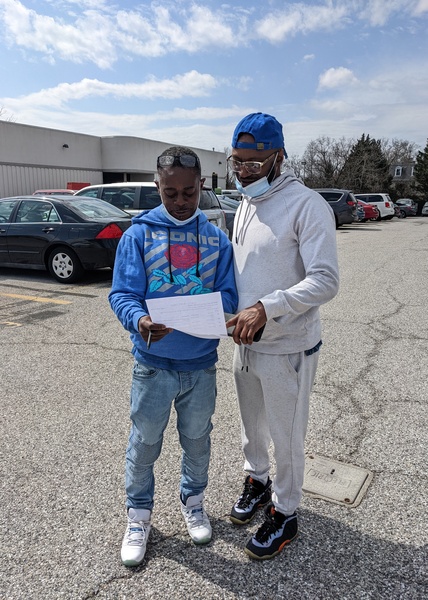
In the state of Maryland, some crimes eligible for expungement include civil citations, juvenile transfer, not guilty verdict, convictions for nuisance crimes, some traffic violations and more. Some crimes not eligible for expungement include pending criminal matters, cases that ended in guilty finding and if there are multiple charges or cases from the same incident.
MLA provides expungement services free of charge, as long as the individual makes less than a specific income. People who make more than that amount or want to do the petition themselves can get records expunged for a fee of $30 per petition in most circuit courts.
Angus W. Derbyshire, pro bono coordinator at MLA, said people have records eligible for expungement that are up to 40 years old, prohibiting them from getting certain jobs and housing.
“Sometimes those records are not even guilty dispositions, like an arrest or a plea,” said Matt Beverlin, visiting assistant professor of political science at Loyola. “The record still persists for years in the court system, even if they were never found guilty.”
Aquil Rahim, a 42-year old native of Baltimore, said his first charge happened when he was 15.
“Because of a certain thing on your record, you won’t get housing, you won’t get a good job, so what’s left? How are you going to live?” Rahim asked.
Although Rahim holds an associate degree in business from Baltimore City College, he said he was denied a job at Amazon, due to his criminal record. He has been unemployed for months.
As a father of two children, he said his main motivation to clean his records is to “get a good job so he can at least feed his family.”
Even though Rahim might not be able to get some charges expunged, he is determined to clean his record as much as possible so it “doesn’t look as bad.”
Of the 96 clinic attendees, only 63 were eligible for expungement. From those 63 clients, a combined total of 97 petitions were prepared.
Although some were not eligible for expungement, others had a much smoother process.
Laray Workman walked out of the clinic with a big smile, sharing with his cousin, Rahim, that the lawyer told him his case was closed and his records could be removed in approximately 30 days.
Workman was convicted of marijuana possession, twice, 20 years ago, and the record has prevented him from acquiring better job positions and housing.
Average records eligible for expungement include assault, drug charges and even some traffic violations.
“After Freddie Gray was killed in Baltimore, we (MLA) really wanted to do something to bring the lawyers closer to the community,” said Amy L. Petkovsek, deputy chief counsel for MLA and a parishioner of St. Ignatius in Baltimore.
A “community lawyer model” was developed inside MLA, in which the firm partners with churches, libraries, development centers, hospitals and other communities to “meet people where they are,” Derbyshire said.
With offices located downtown, MLA can have more influence by going out into the community to meet clients, Derbyshire added.
Student volunteers handed out 750 flyers around the neighborhood to businesses and community members, promoting expungement help.
Even though housing and employment seem to be the primary reasons for clients to clean their records, motives vary.
Theo Skeens is financially well off and has his own business with his wife. He was convicted of assault and “a couple fights” 45 years ago. Skeens would like to clean his record so he can go to school.
“I never applied to many things because I was scared,” he said referring to his criminal record.
Jennifer Robinson, who said she has “a diverse portfolio” of criminal records, told the Catholic Review cleaning her record is a “personal achievement.”
Petkovsek noted the community has gone through a lot of trauma. When people realize they can change their records, she said, it not only takes the weight off their shoulders, but it plays a significant part in healing.
“Empowering people to move forward in their own lives and recognizing their own dignity in that process is extremely important to me,” she said. “I always get more out of it than what I feel like I could ever give back.”
Email Priscila González de Doran at pdoran@CatholicReview.org
Read More Social Justice
Copyright © 2022 Catholic Review Media
